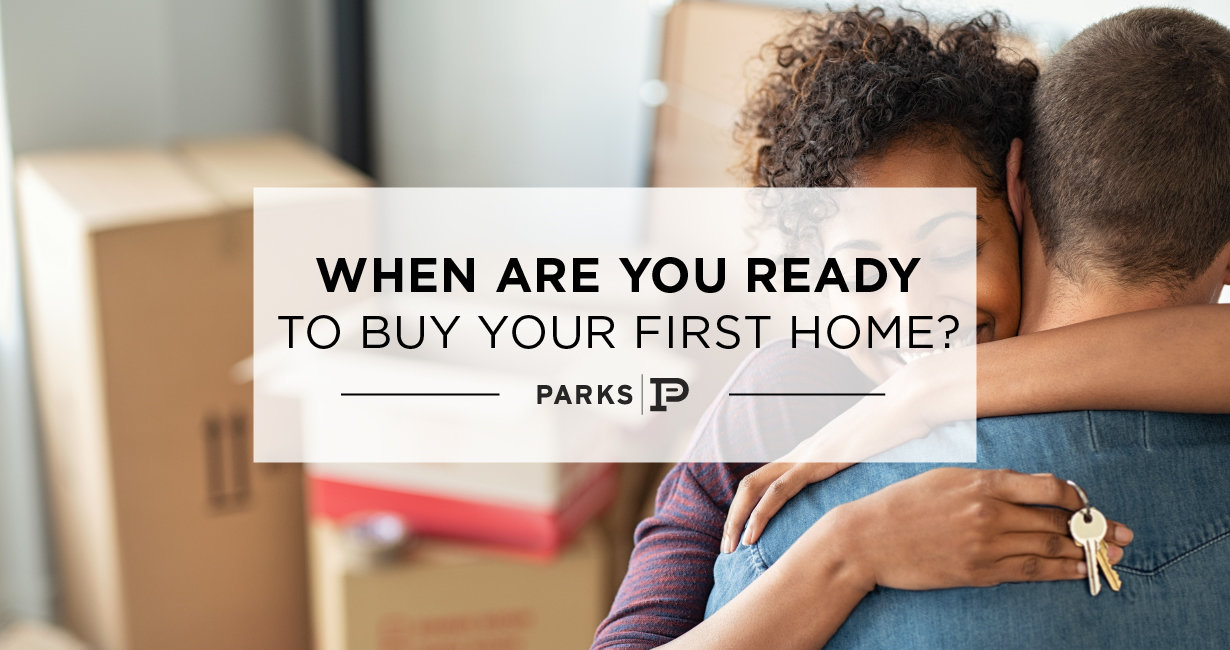When Are You Ready to Buy Your First House?
Posted by Jenni Barnett on Monday, February 3rd, 2020 at 12:36pm.

Millennials, you’re buying your first homes! Congratulations: it’s exciting to see so many of you settling in. If you’re a millennial who is trying to decide when you’re ready to buy your first house, Parks has you covered with our First Home Purchaser’s Readiness Checklist.
Financial Readiness
Financial readiness is, without a doubt, the most important factor in successfully purchasing your first home without experiencing the pangs of buyer’s remorse that are felt by a reported 81% of millennial homeowners.
Take the following steps to prepare yourself financially for homeownership.
-
Reduce or eliminate all other debt.
High-interest consumer debt, student loans, and sizable car payments will all affect your ability to achieve financial readiness. Pay off your existing debts, make sure your monthly and annual financial plans allow you to avoid adding to your debt load.
-
Optimize your credit rating.
A robust credit rating is key in securing excellent financing offers for your first home purchase. Once you’ve paid off your debts, shown that you always pay your bills on time, and maintained two healthy lines of credit for a few years, your stellar financial reputation will make lenders eager to work with you.
-
Invest in your retirement.
If you’re considering homeownership, but you haven’t been contributing to your retirement at a rate of 15% (either alone or in partnership with your employer), take a step back and revisit this vital step. Once you change your retirement contributions and have adjusted to your new take-home income, you’re ready to revisit home ownership.
-
Save 15% of your income—for yourself.
Saving for your first down payment must come second to saving for your own rainy-day fund. Save until you have 6 months of your usual take-home pay saved up in a readily-accessible savings account.
-
Save up a down payment plus closing costs.
This figure is hotly debated, but conventional wisdom dictates a down payment of 20% of the home’s purchase price. If your budget for your home is $300k, for example, you should have $60k saved before you begin searching.
Closing costs are variable, but if you have around $7k saved, you’ll likely be more than prepared.
-
Create an emergency fund for your new home’s repairs.
First-time homeowners are often caught off-guard by the additional costs they incur in the first year of homeownership. In addition to your down payment, you may need to make repairs and upgrades to:
- Flooring
- HVAC systems
- Windows
- Interior paint
- Pipes
- Electrical outlets
- Lighting and home fixtures
Additionally, when moving from a rental into a new home, you may discover that you need to buy appliances, tools, and a lawn mower and weed whacker.
Utilities are generally more expensive for a house than they are in an apartment or shared living situation. A phone call or email to your prospective utility providers can help you calculate the monthly amount you can expect to pay.
-
Understand HOAs.
HOA fees are variable over time, may make changes to their rules at any time, and exert a high level of control over homeowners in their association. If you choose to purchase within an HOA, be sure you’re prepared to adapt, both financially and personally, to this influence.
Examine Your Current Life Situation
Before you make the transition from renting to owning your own home, you must be sure that your life is stable and stationary.
-
Establish job security.
While no one has total job security, you should have a steady job in which you can place a reasonable amount of confidence. If your job is intermittent, or if your last review left you worried about your future with your company, this is not the best time for you to purchase your first home.
-
Make sure you will remain in the area for a minimum of 5 years.
When you purchase your home, you’ll be incurring an opportunity cost. Should an enticing job open up in another state, or your life goals dictate a move, it could take you upwards of a year to complete a sale on your home.
If you move before 5 years have passed since you purchased your home, you will almost certainly lose money on the transaction.
Don’t be discouraged if you’ve read through our readiness checklist and have found areas where you still need to improve. Having goals to work toward can propel you toward success because you’ll be able to narrowly focus your efforts. Keep at it and remind yourself that by waiting until you’re fully prepared, you’ll greatly reduce the stress you’ll experience in the first few years as first-time homeowners.
If you are able to check all of the boxes on the above list, we pronounce you ready to purchase your first home! Parks Realty is ready to show you desirable homes in your favorite Middle Tennessee locations. We invite you to contact us today.







